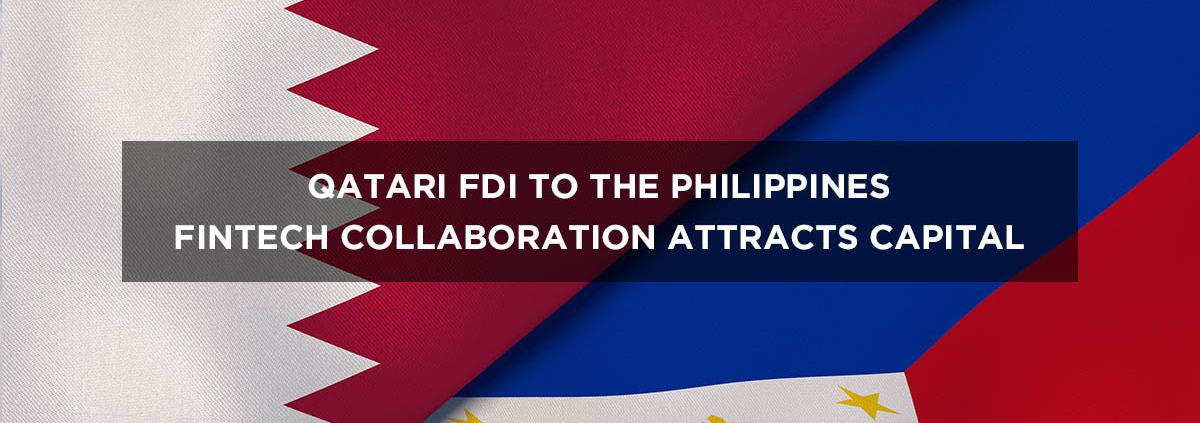In July 2020, when the whole world was reeling due to the pandemic, the Philippine-Qatar Investment Forum was held virtually. Many keynote speakers weighed in on the investment prospects, emphasizing some of the favourable conditions in the Philippines. But unlike previous editions, this event would soon gain more significance, with Qatar’s geopolitics taking an interesting turn.
In the first week of January 2021, KSA, UAE, Egypt, and Bahrain, which had imposed an embargo on Qatar since 2017, restored their relations. This monumental development is expected to relieve Qatar of its supply-chain concerns, maritime disputes, and an unhealthy reliance on natural gas reserves. Additionally, this will enable Qatar to diversify its interests, explore investment opportunities in growth markets and deploy its sizable sovereign wealth funds, without diplomatic roadblocks.
During the July 2020 event, Philippine Economic Zones Authority (PEZA) highlighted the key sectors which align with Qatar’s interests: Islamic finance, Fintech, and agribusiness. While the Islamic finance market is thriving in Southeast Asia, it is grossly underserved compared to the Middle East. This is perhaps why PEZA is also stressing Fintech, which has enabled competitive economies to democratize, reduce entry barriers and bring inclusion into financial markets. And Qatar happens to be uniquely positioned to serve this market in the Philippines.
Qatar’s financial competencies
Qatar is the only Gulf nation to achieve fiscal surplus since 2017. And the nation’s reputation in sovereign wealth funds is well known. Qatar is currently exploring avenues to deploy its “dry powder,” following years of lost opportunities. In the meantime, the nation has also made significant progress in Fintech, as evident in the rollout of Qatar FinTech Hub (QFTH), among other initiatives. This is to say, the Philippines has an opportunity to unlock both tech and capital flows from Qatar. But what makes the Philippines a good bet for Qatar?
Philippines’ potential
The Philippines has a robust agrarian sector — nearly 50 percent of the total landmass is agricultural land. Therefore, the focus on agribusinesses is Qatar’s way of enhancing its food security prospects. Besides, the Philippines boasts strong demand economics, thanks to a population of over 108 million. Also, the country has an advanced legal system and a sizable skilled, young, and English-speaking workforce. It offers a gateway for Qatar to access other important growth markets through its ASEAN membership. But most importantly, in addition to core competencies, the Philippines has shown intent via favourable FDI policies, unlike any other nations in the region.
Sweetening the pot
In 2019, the Philippines fell short of its FDI targets, which led to a slew of policies in response. Among these were the abolition of minimum capital requirements, better mechanism for permits, and more protection to minority investors. In fact, these policies translated to quantifiable outcomes in just a year. In 2020, when Southeast Asia’s FDIs contracted by 31 percent, the Philippines’ rose by 29 percent, reaching $6.4 billion. In the meantime, the Philippines increased its value proposition for Middle Eastern economies, by developing niche segments like Islamic finance and halal tourism.
Fintech, Southeast Asia and Islamic/halal industry: An opportunity waiting to be capitalized
Firstly, Asia is home to 60 percent of the world’s Muslim population, representing strong aggregate demand. This demand is particularly high in Southeast Asia, where Muslims constitute the highest majority. The region accounts for nearly 25 percent of the global Islamic finance market, which is reportedly poised to grow to $3.7 trillion by 2024. Such numbers are enticing for an undiversified economy like Qatar, which is embarking on a new growth chapter.
Also, the Philippines is home to over five million Muslims and shares borders with predominantly Islamic nations like Indonesia and Malaysia. So, taking stock of the opportunities, the Philippines has optimized the halal certification process, encouraging financial institutions and the service industry to explore new avenues. Also, several initiatives to develop halal-friendly services are currently underway, and the imminent Philippines-Qatar Fintech cooperation could play well into these developments. I wouldn’t be surprised if Qatar emerges as the leading investor in the Philippines, ahead of South Korea and China, in the near future.



